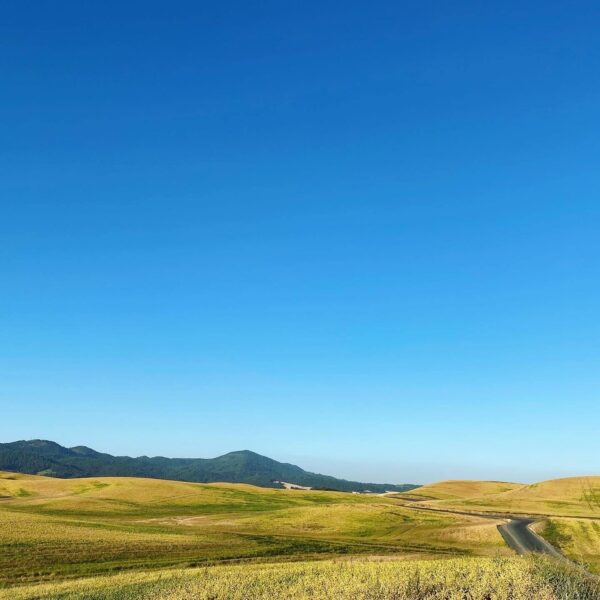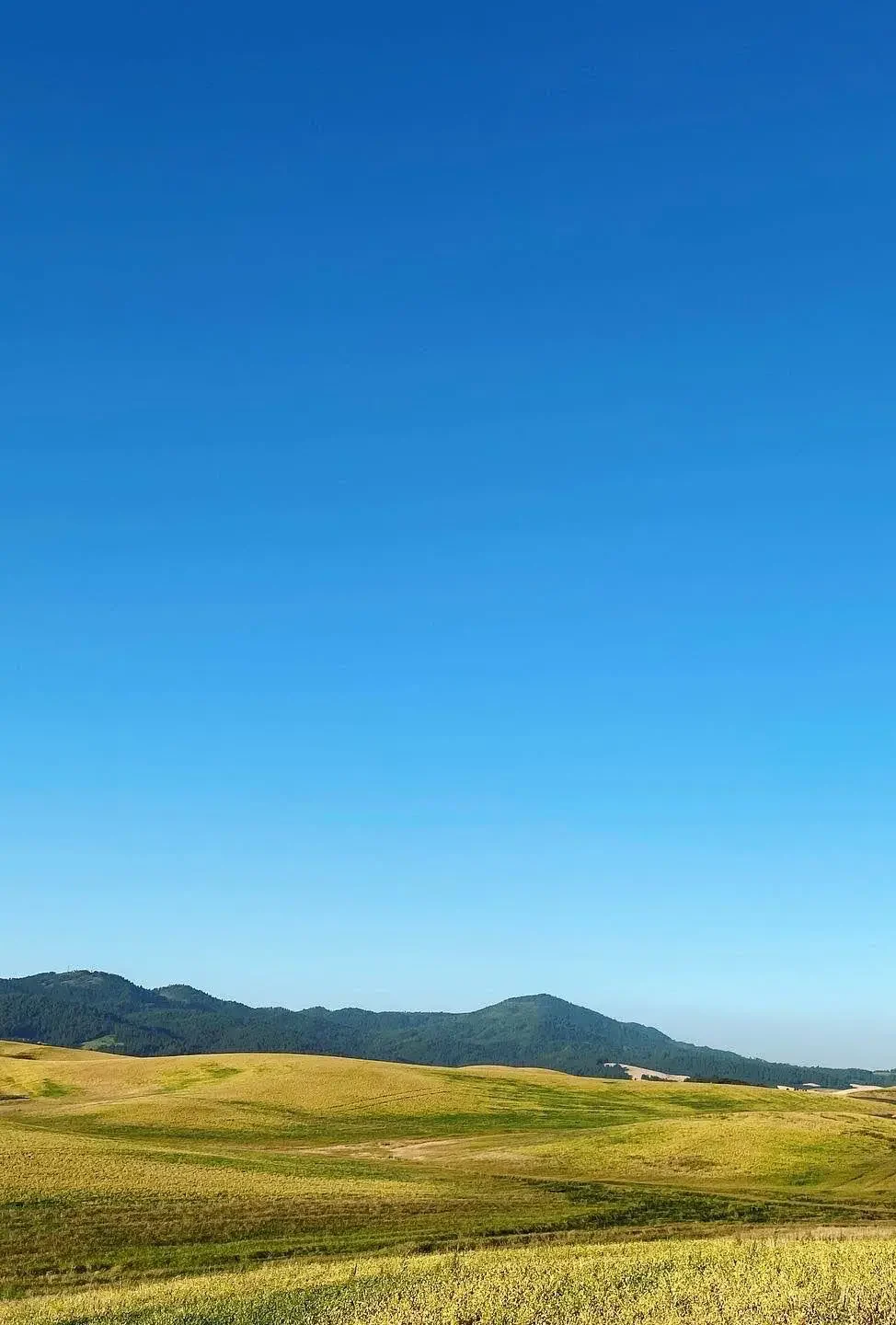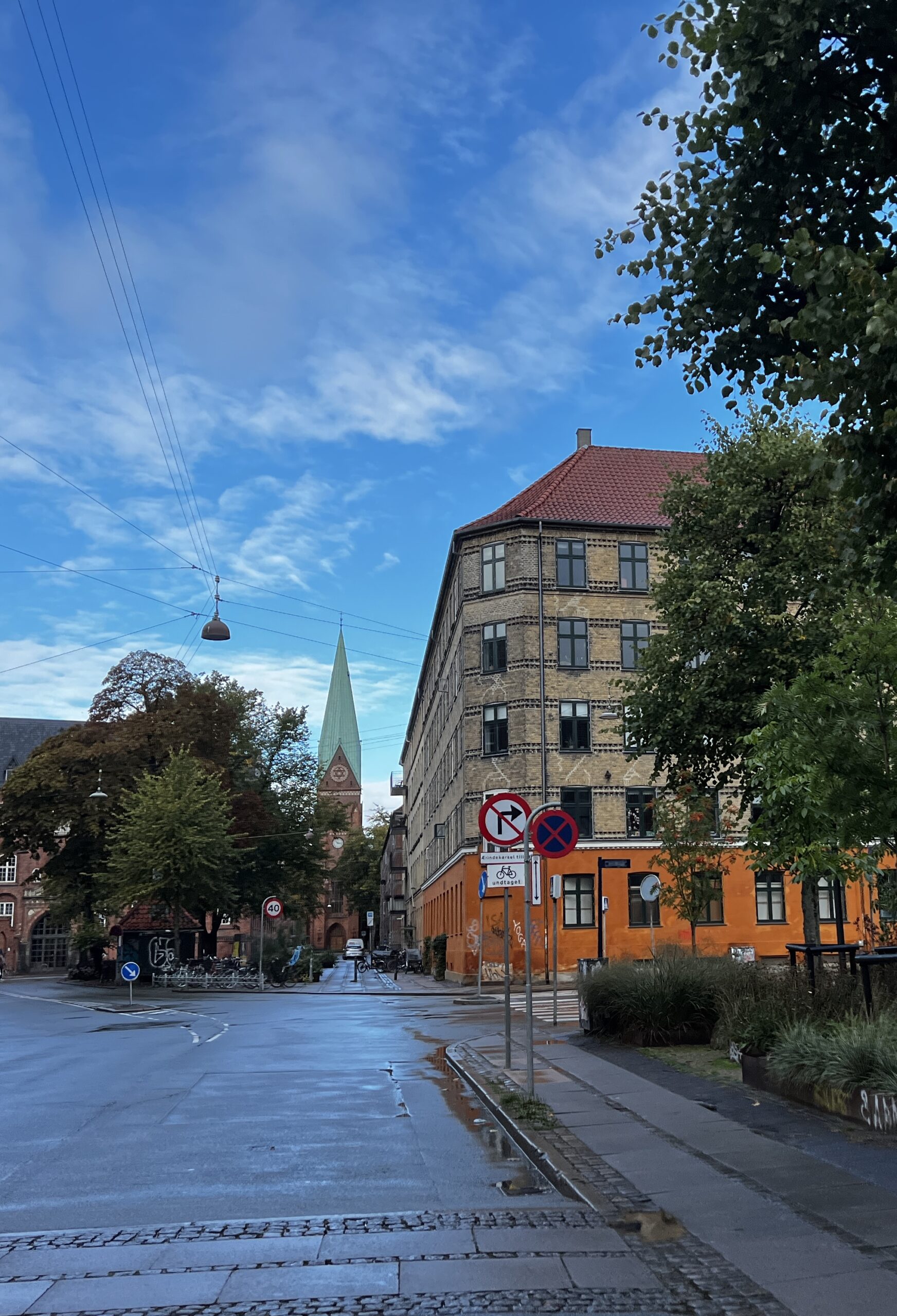
Photos courtesy of author.
Moscow, ID
One day, across the street from the gay coffee shop, a toddler in a blue t-shirt cocked a pistol at me. Silver glinted in October sun. He clicked the trigger, Dad and Mom looking on. Got her is what the kid said to Dad, a man closer to seven feet tall than six.
Only when I passed them in the crosswalk did I see the orange plastic that covered the gun’s tip: a toy. Dad ruffled the boy’s hair. I buried myself in my cell phone.
The gay coffee shop makes the best pastries in town, and I say so all the time. Just before I was shot, I’d said the raspberry rhubarb muffin—I tell everyone about the raspberry rhubarb muffin. And the barista on duty had said Thank you so much and You know what? I’ll look at the market to see if maybe there’s one last bundle of rhubarb and Come back next week. And I’d said I will! Of course I would.
I spilled my coffee when the kid pulled the trigger and feigned the recoil by tossing his little body back. Not in a big dramatic way. Just a little gallop of flying milk and espresso that landed, mostly, back on its own lid. How do you measure fear? is a thing I don’t ask myself, but if I were to do so, I might count it up in coffees and muffins, the crumbs of the streusel the gay coffee shop lovingly presses on top. I might measure it proportionally to the nice things I grant my queer and gnarled body, to the ways I try to make something gentle of it.
I made a friend my first year in grad school here, a fiction writer who’s writing a novel narrated mostly by trees. She took a job working at the university’s experimental forest and then trained, for a time, as a wild land firefighter to learn about the trees, about their perspective.
The forestry scientists said Moscow has some of the unhappiest trees in the world. I remember clearly my friend telling me this, though I don’t remember much about her explanation of why. It’s possible she said unhealthiest rather than unhappiest and my brain overwrote her telling with my own truth. Close enough, anyway, is what I thought when I reached out to her to confirm the trees’ despair and she had no recollection of the conversation, now years past, at all.
Mostly, the area around the town of Moscow is clear cut. Plenty of towns around here are logging towns, but now most are ag land—long ago laid bare. Decades ago, the wood floors in our living room were the bleachers at the local middle school. Before that, trees. The framing of our house’s first floor is tall enough that the extension ladder a neighbor kindly lent me to clean the gutters failed to reach the roof.
Plummer, a town halfway between Moscow and Coeur d’Alene, has stacks of logs at Stimson Lumber so large they divorce from space; they’re fuse wire or matchsticks. All summer long, when we drive north to swim in Lake Pend Oreille, we watch massive sprinkler systems douse them in gray water in hopes they won’t burn if catastrophe or nature comes through. Moscow is the type of place that I call rural but which many of my students and some of my peers do not, defining rurality by a single stoplight or stop sign or grocer. It’s not clear to me how much of this is a matter of perspective and how much of it is a matter of fact. As we first drove into Moscow, still in the midst of rolling wheat fields in every direction when Google maps said we were six minutes from our new house, I could think nothing but This is the picture on the Hidden Valley Ranch bottle, few trees in sight except on one short ridgeline outside of town. I didn’t see yet the bareness as a violence.

Photos courtesy of author.
At the press conference held after four university students were knifed to death while sleeping down the street and a block from campus in the home three of them shared, the chief of police warned everyone listening in to remain vigilant. We’re a community policing community; we always have been, he said. I wrote it down on a sticky note at my desk.
My first- and second-year students at the university write essays about their second amendment rights and they write lesbian love poems. They want to protect salmon runs and they want wolves out of the state and they crumple when Roe is overturned. They’re eighteen and they’re wild land firefighters who miss class when they’re called away to blazes in the Lewiston valley or Washington or even western Montana. I layer my books and water bottle into their configuration in my backpack carefully when I get an email that a student has to leave to hold a fire line. I tell them Of course, yes, they can have an extension on the assignment. Of course, yes, and I take everything from my bag out, shaking with fear for them, and I re-pack it again.
A month after the murders, an email from the university president, the provost, and the dean of students notified all students and faculty that, among other things, “individuals have inquired about firearms for personal safety.” The email linked to information about the law SB 1254, which allows students to carry concealed firearms to class on public college and university property.
In office hours, one student throws a binder—not quite at my body. It ricochets off the corner of my desk, silver glinting from its three rings. She’s four inches taller than I am. My office is the size of a closet. My student reports me to the dean because she shouldn’t have to learn from a homosexual teacher. She tells me so.
In class, I lecture at my students’ gaping backpacks and their feet.
I’m trying to be exact, but I’m not sure how much my precision matters.
A hate crime could just as well be called the action of a community policing community.
You can see the Northern Lights from here, sometimes, but we never have.
We once watched the Perseids from a wheat field. My partner and I slid around on the hood of my car, trying to get comfortable while the sky fell down. What’s one careening piece of light? The majority of meteors, are, anyway, smaller than a grain of sand.
Afton Montgomery was a finalist for the 2023 Harvard Review Chapbook Prize and has recent work in Electric Lit, The Millions, Chicago Review of Books, Pleiades, Passages North, DIAGRAM, Poetry Northwest, Prairie Schooner, Fence, and others. Her writing has been supported by fellowships from Centrum, Lighthouse, and Fine Arts Work Center. Formerly an independent bookstore buyer in Denver, Afton calls Colorado home.




